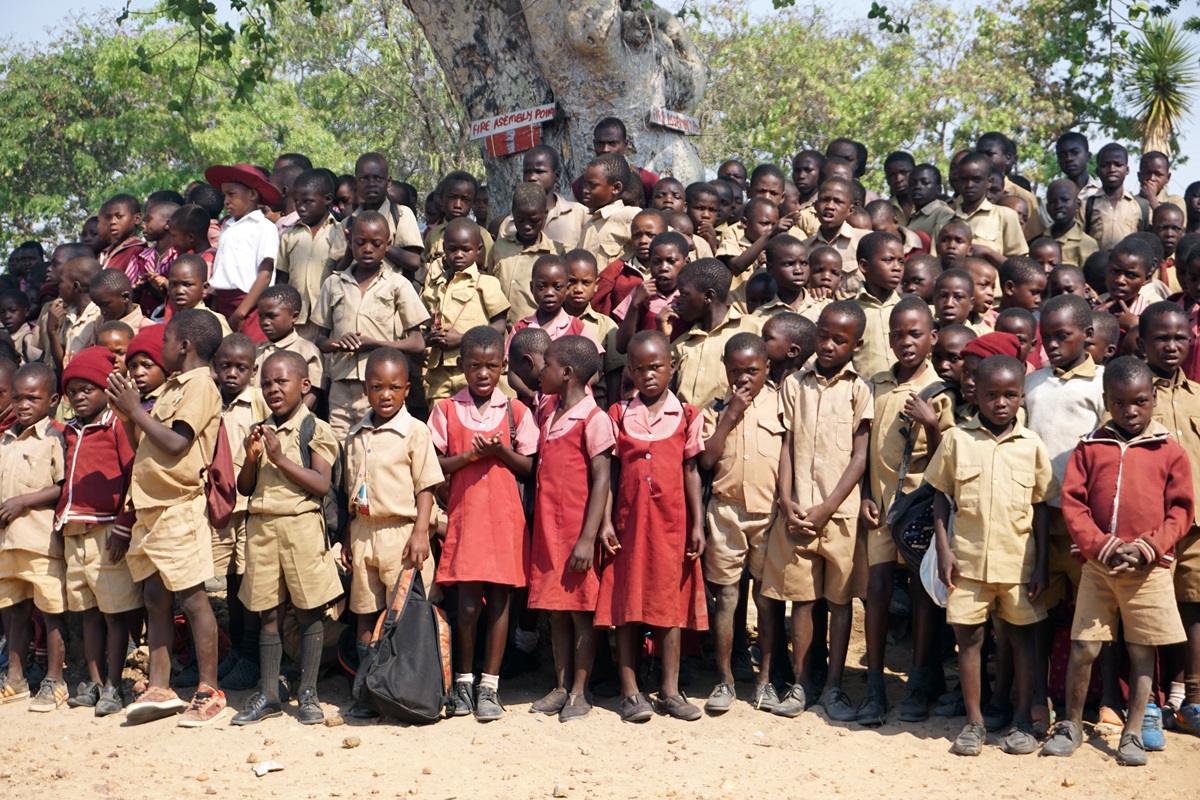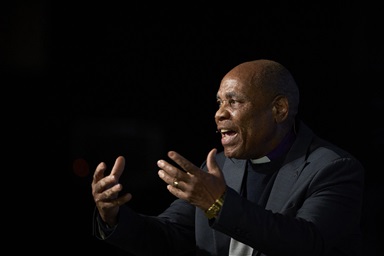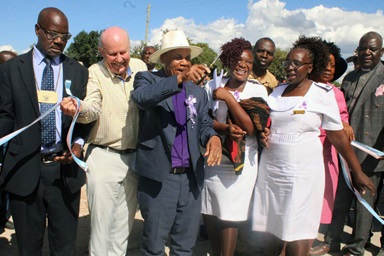More girls than boys are being born in Zimbabwe, but those numbers are not reflected in enrollment at the schools at Arnoldine Mission, a United Methodist mission farm in the Zimbabwe East Conference.
Beginning around Grade 7, girls start disappearing from the mission’s schools, said Godfrey Chishakwe, headmaster for Arnoldine Primary School.
A little more than 55% of those born at Arnoldine Mission Clinic in 2018 were girls. “The graph has been like that for years,” said Sister Talkmore Chitsa, a nurse at the clinic.
Despite the higher birth rate, enrollment of girls at both the primary and secondary schools is lower — 48% at the primary school and 46% at the secondary school.
School authorities call the statistics “worrisome.”
While girls’ enrollment in the first two years of school surpasses that of boys, the number decreases as grade levels increase, said Chishakwe.
At Grade 7, the figure goes down for a number of reasons, Chishakwe said.
“Chief amongst them is that most parents still cling to the traditional cultural belief that girls should not be given equal opportunities with their boy counterparts for the reason that they will get married and have no benefit to the family,” he said.
He gave the example of a 15-year-old girl in Grade 6 who had to drop out of school after she got pregnant.
“This is just a tip of the iceberg of what is happening within the community of Arnoldine. In child-headed families, it is the girl child who is forced to stop going to school and take up the mother’s role of looking after the family,” he said.
Bishop Eben K. Nhiwatiwa, episcopal leader of the Zimbabwe Area, said the low number of girls is a cause for concern, especially during the 21st century where gender discrimination and disparities are top of the agenda.
“If we fail to address this issue, the future will be doomed,” Nhiwatiwa said. “It needs a concerted effort of all stakeholders.”
To help with the disparity, Arnoldine is collaborating with Dreams — part of FHI 360, a nonprofit organization that responds to human development challenges — to identify children who need help accessing education.
“The partnership, although at its infant stages, is aiming at paying school fees for girls in different challenging circumstances, which include poverty, unequal gender norms, health problems within the education systems,” Chishakwe said.
Mwaonera Chiremba, headmistress at Arnoldine Secondary School, said that while the enrollment for girls stands at 46% at the secondary school, it has dropped as low as 30%.
Munoda Tapfuma, 16, head boy for Arnoldine Secondary School, said parents often discriminate against girls.
“Many parents do not support education for girls. They prefer to see us (boys) going to school and girls remaining in the kitchen doing household chores,” he said.
The school’s head girl, Precious Katema, 15, agreed and said she was disheartened by the low enrollment rate of her fellow girls.
“I can say that, because of poverty, there is preferential treatment of a boy child against girls. This causes perpetual challenges on us and we end up succumbing to early marriages because of being neglected,” she said.
Katema said she is one of the lucky ones with parents who value education.
“I am so lucky because my parents saw light in sending me to school. I want to be a good example in my community so that many parents can follow suit.”
Law Simango, geography teacher at Arnoldine Secondary School, said the enrollment figures reflect the nature of activities in the area.
“There are more tobacco farmers with high cash disposals, and due to poverty and idle time, girls are attracted to them. Hence, they get married early,” Simango said.
He said there also is a lot of child labor, especially for girls.
Parent Chipo Mahuti Tapfuma cited early marriage as the major culprit.
“Some are orphans or from a child-headed family and they fail to get an adult to guide and stand for them at schools,” said Tapfuma, adding that the girls “give in to love proposals.”
She said some children from broken families can suffer from neglect that forces them out of school. She believes raising awareness about gender equality and equal opportunities can help.
“Those who will be advocating for the right of education for girls should utilize the gatherings within the communities, churches and schools, or even (use) a door-to-door approach.”
School authorities are using various methods of intervention.
Chiremba said the school has partnered with Family, Adult and Child Therapies, a non-government organization that aims to maximize the potential of children, teens and young adults.
“They are paying school fees for girls at Arnoldine Secondary School,” Chiremba said. “A total of 18 girls have so far benefited this year from this initiative and more are going to benefit.”
The church also is working to reverse the trend. The Ministry with Women, Youth and Children has used funds from the United Methodist Committee on Relief and United Methodist Women to support different income-generating activities for women and girls so that they can afford school fees.
“We are empowering many women and girls … so that those who are facing financial challenges in paying school fees can use the income to address that,” said Tendai Rebecca Gurupira, area coordinator for the Ministry with Women, Youth and Children.
She said the group has visited the Marange, Bulawayo Midlands and Murehwa United Methodist districts this year. The goal is to cover all 13 districts by the end of the year, she said.
“Recently, we have empowered youths and young adults in entrepreneurship and they are doing a lot in sending themselves back to school.”
Gurupira said workshops for parents are raising awareness about gender discrimination and the dangers of early marriages.
At the conference level, the board of Church and Society and the Ministry of Women, Youth and Children are offering scholarships to encourage girls to continue their education at the university level.
The women’s organisation Rukwadzano Rwe Wadzimai also is raising funds to pay for school fees.
“We are paying school fees to more than 100 children in the conference,” said Anesu Mironga, secretary for the Zimbabwe East Conference women’s group.
Chingwe is communications coordinator for the Zimbabwe East Conference.
News media contact: Vicki Brown at (615) 742-5470 or newsdesk@umcom.org. To read more United Methodist news, subscribe to the free Daily or Weekly Digests.
Like what you're reading? Support the ministry of UM News! Your support ensures the latest denominational news, dynamic stories and informative articles will continue to connect our global community. Make a tax-deductible donation at ResourceUMC.org/GiveUMCom.




